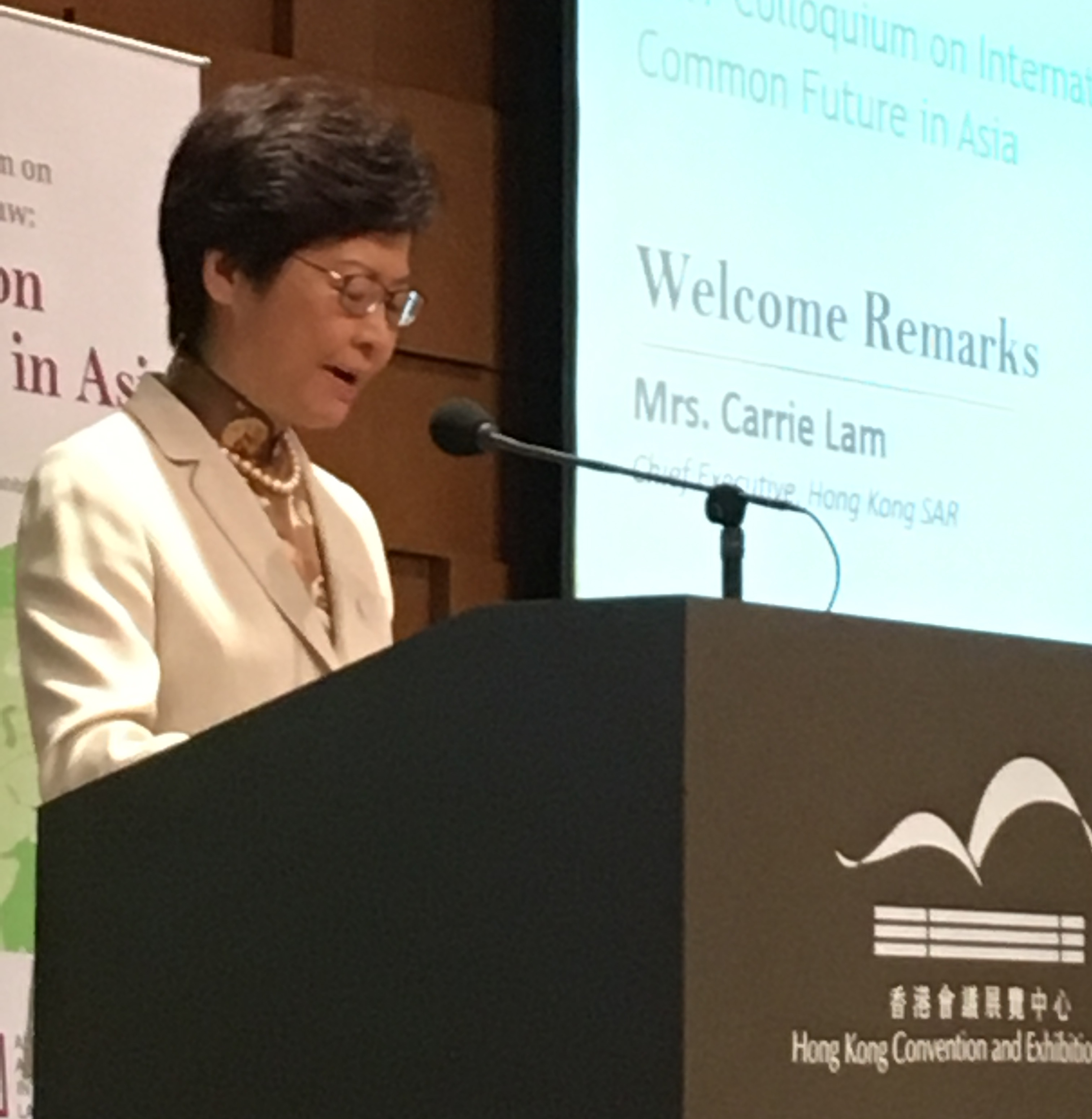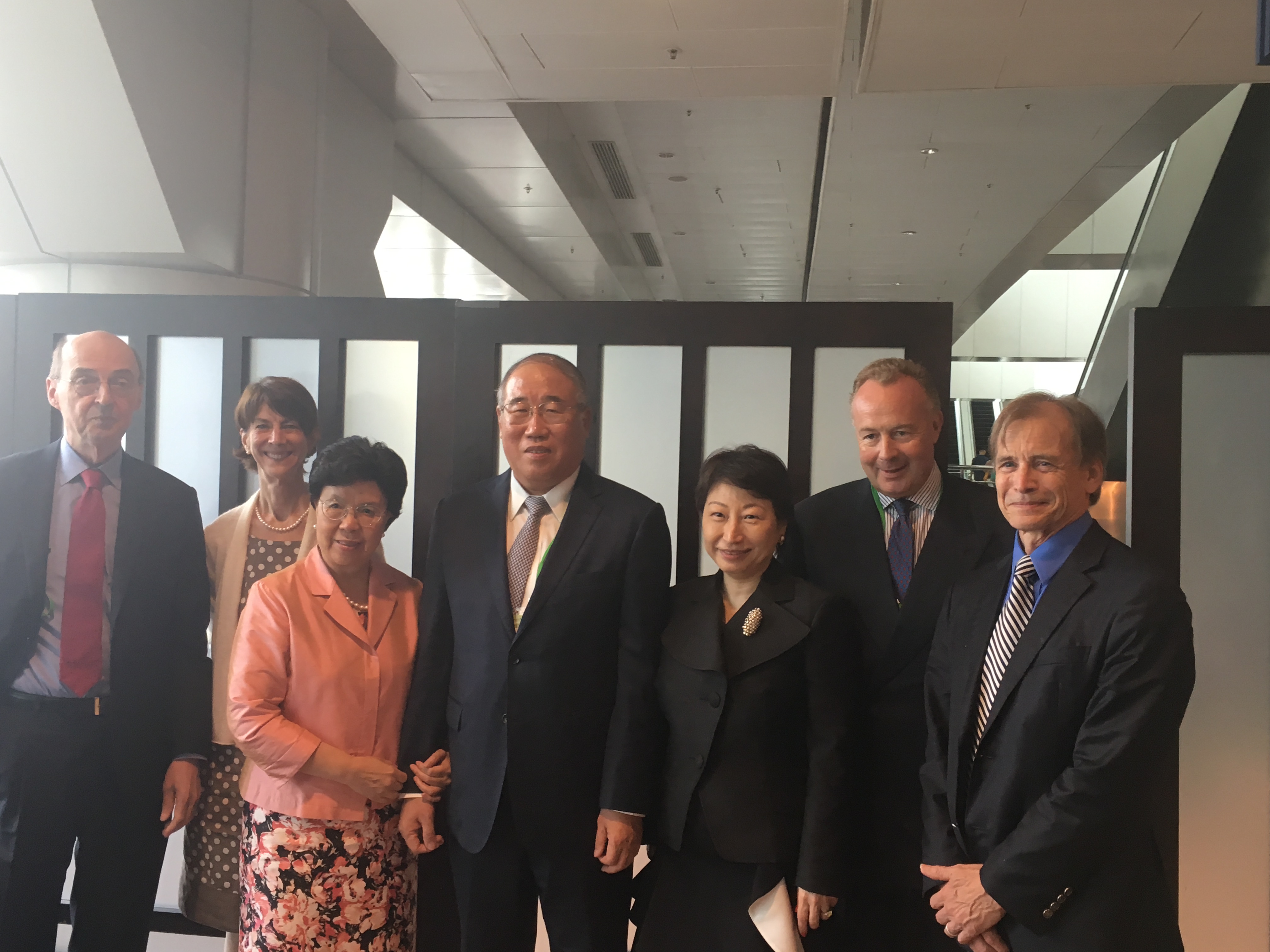7 July 2017: CIL Director Lucy Reed Speaks at the Inaugural Colloquium on International Law of the Asian Academy of International Law in Hong Kong

Carrie Lam delivering welcome remarks on 7 July 2017.

After the Colloquium closing on 8 July 2017, from left to right: Prof Dr Albert Jan van den Berg (former President and Secretary-General of the Netherlands Arbitration Institute), Prof Reed, Dr Margaret Yang (former Director-General, World Health Organization), Mr Xie Zhenhua (Special Representative for Climate Change Affairs of China), Prof Teresa Cheng SC (Chairman, AAIL), Mr Hans Michael Jebsen (Chairman, Jebsen Group), Prof Paul Haagen (Duke Law School).
CIL Director, Professor Lucy Reed, represented the Centre and spoke at the inaugural colloquium on International Law of the Asian Academy of International Law (AAIL) in Hong Kong on 7–8 July 2017. The theme of the colloquium was ‘Common Future in Asia’, with panels on ‘One Country Two Systems: Interaction with International Law’, ‘Investment Collaboration: Opportunities and Challenges for Asia’, and ‘Interpretation of Treaties and UNCLOS: The Regime of Islands, Rocks and Offshore Archipelagos’. The welcome and keynote speakers included the new Hong Kong Chief Executive Mrs Carrie Lam, GBM, GBS; Mr Rimsky Yuen, GBM, SC, JP, Secretary for Justice of Hong Kong; Professor Teresa Cheng SC, Chairman of the AAIL; Dr Li Shishi, President of the Chinese Society of International Law; Professor Zhang Yuejiao, Former WTO Appellate Body Member and Chair; Mr Liu Zhenmin, Vice Minister for Foreign Affairs of China (by video); and Mr Xie Zhenhua, Special Representative for Climate Change Affairs of China. As the first speaker on the panel on ‘Interpretation of Treaties and UNCLOS’, Prof Reed addressed the basics of treaty interpretation under the Vienna Convention on the Law of Treaties, with examples in the Award on Merits of the UNCLOS Annex VII Arbitral Tribunal in the South China Sea Arbitration (Philippines v China) other than UNCLOS Article 121(3). She offered the audience, which contained many newcomers to international law as well as oceans law experts, three points to remember: (1) treaty interpretation is an art not a science; (2) resorting to standard dictionaries to define the ‘ordinary meaning’ of treaty terms is not helpful; and (3) when international tribunals are asked to interpret a treaty on a dispositive issue, one or both states will be unsatisfied, many will criticise, and scholars will be busy. The colloquium programme is available at www.colloquium.aail.org.

